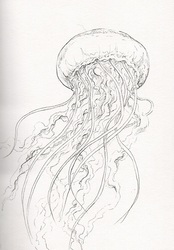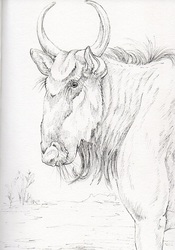Sign In
CloseTotem of the day is Kiwi! There may be a large change coming in your life so be sure to open your mind to accepting it with love rather than changing out of fear or doubt. An opportunity to give a part of yourself for a community or your family will come to you. It will be beneficial for you to spend time working with your hands such as with clay or to go out into the forest for time spend enjoying the sights, smells, and energy of the land. Walking slowly and observe your surroundings in a form of walking meditation with your breath matching the steady steps of your walk. The Kiwi spirit guide is known for it's connection to sensitivity, affection, charity, creativity, assertiveness, and leadership. Kiwi often comes as a reminder to be aware of how sensitive you may be getting. It may be time to look to the ones around you to see if you are spending enough time showing your love to others. Share compliments and affection freely or possibly also working in a group activity for a greater good. In their native land, New Zealand, Kiwis have become an important symbol. Even appearing on their military badge and on the back side of the New Zealand dollar. The Maori saw the Kiwi as protected by the god of the forests named TaneMahuta. Seen as a guardian, the kiwi was not hunted and their feathers were worn on special robes during ceremonies. People who connect with Kiwi are often loved and return this love willingly to those around them. These individuals are sensible and logical with a joy for giving themselves to others whenever needed. Often these types prefer to organized their day so they work during the night when they are most productive.
Kiwis, Actinidia Deliciosa, are omnivorous, flightless bird native to New Zealand that can live between 8 and 12 years in the wild. They are the smallest member within the group of flightless birds called Ratites which also includes emus, ostriches, and cassowaries. Their closest relative has been identified as the extinct elephant bird of Madagascar. There are five species of Kiwi: the Okarito brown, Southern brown, North Island brown, Little spotted, and Great spotted Kiwis. The largest species of Kiwi is the Great Spotted Kiwi or Roroa. This bird can weigh over 7 lbs and stand as high as 18 inches. The smallest kiwi species would be the Little Spotted Kiwi which grows to only just over 9 inches tall and weighs less than 3 lbs. This species has become extinct on the mainland of New Zealand with a small population growing throughout predator-free islands such as Kapiti Island. While Kiwi prefer heavily forests areas, they are also known to adapt to more mountainous regions due to the diverse habitats throughout New Zealand. Being flightless, their tiny vestigial wings are barely noticeable under their feathers and requires them to forage on the ground. A kiwis diet consists of a variety of animals and plants such as insects, spiders, and worms as well as berries and fruits that have fallen to the forest floor. They will use their long beak to sift through the foliage on the ground. Being the only bird with nostrils at the end of their beak, their powerful sense of smell aids in hunting. Primarily solitary birds, are shy and nocturnal in order to avoid predators. However, Kiwi are monogamous creatures that will form a pair bond with one other kiwi who they will spend their entire lives with. When breeding season occurs between June and March, these pairs will call out to each other at night every three days to meet in a nesting burrow. The Kiwi lays the largest egg in proportion to it's body size in the entire bird world. While generally the size of a chicken, A Kiwi's egg will be up to six times the size of an average chicken's egg. It is the male who will then incubate the egg for between 63 and 92 days. Although both parents of the Great Spotted kiwi will help in incubation. The female Kiwi must spend the thirty days after laying the massive egg eating three times her normal amount of food to make up for the stress of laying the egg. The egg is so large right before laying that she must fast for 2 or 3 days because of how little space is left within her body. This period of laying and raising their young is the only time a kiwi will remain in one place. Generally, they will be nomadic. Digging burrows each day to sleep in and moving to a new spot by the next day.
Submission Information
- Views:
- 480
- Comments:
- 0
- Favorites:
- 1
- Rating:
- General
- Category:
- Visual / Traditional




